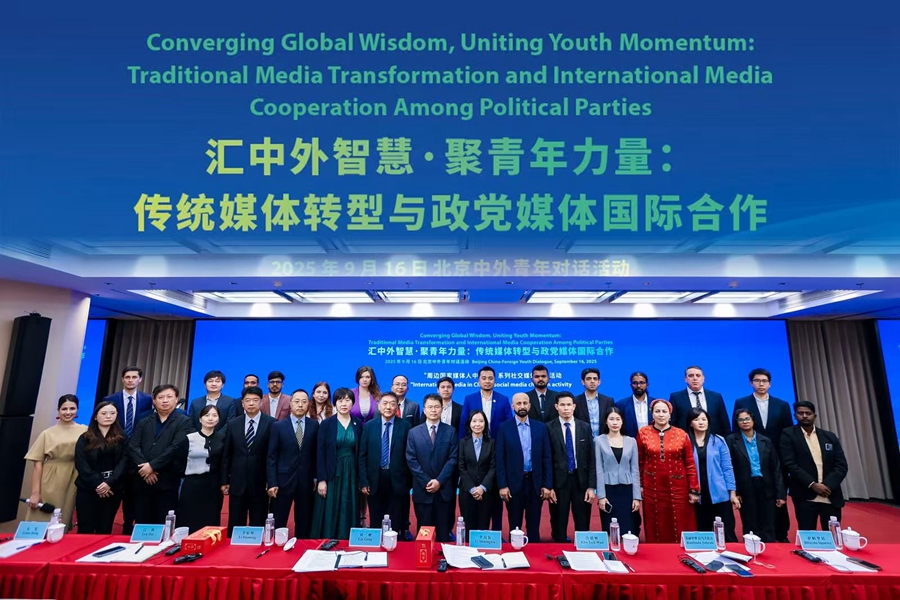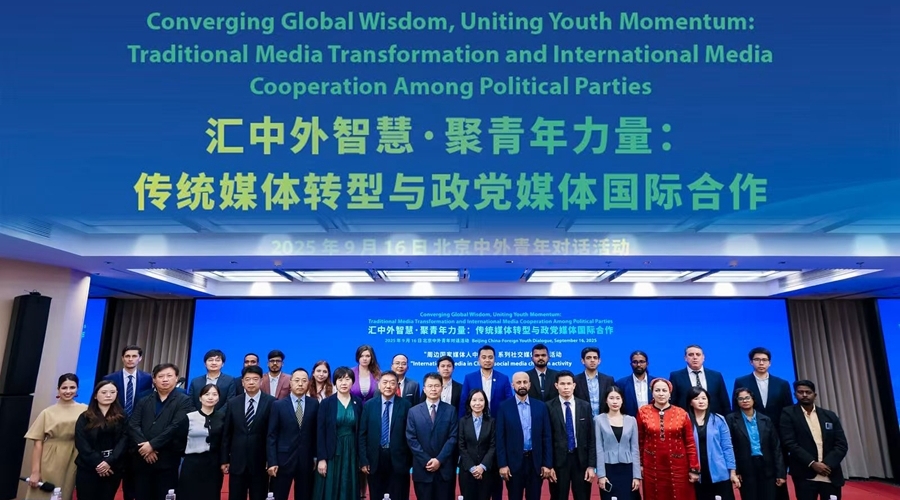A China-foreign youth dialogue on traditional media transformation and international cooperation among political parties was held Tuesday in Beijing, bringing together young media leaders, publishers and scholars from 16 countries, including China, Malaysia, Laos, Tajikistan, Thailand and Sri Lanka.

A China-foreign youth dialogue themed "Converging Global Wisdom, Uniting Youth Momentum: Traditional Media Transformation and International Media Cooperation Among Political Parties" is held in Beijing, Sept. 16, 2025. [Photo provided to China.org.cn]
The event, themed "Converging Global Wisdom, Uniting Youth Momentum," provided a platform for in-depth discussions on how traditional media can transform through digital innovation and cross-border cooperation. It was co-hosted by the Bureau of Public Information and Communication of the International Department of the Central Committee of the Communist Party of China and the Contemporary World Press.
In his welcoming remarks, Li Shuangwu, president and editor-in-chief of the Contemporary World Press, highlighted the need to unite young people to drive media integration and innovation. He called for media organizations worldwide to build an open and mutually beneficial platform for dialogue.
Sengthong Phasavath, deputy director-general of the Lao News Agency, said digital transformation poses challenges but also offers opportunities for revitalizing traditional media. He emphasized that international media cooperation should rest on shared values, focusing on content sharing, joint talent development and network building.
Liu Gang, director-general of Xinhua Institute, said intellectual independence and cultural self-awareness are essential for Global South countries to achieve true independent development. He called for closer collaboration between media and think tanks in the Global South to promote local cultures, build youth confidence, and advance a more equal and diverse global communication order.
Guan Hong, vice president of the China Intercontinental Communication Center, said media outlets must adapt to trends such as story-driven content, integrated communication and community-based operations. She suggested creating a content innovation network, a platform to share digital technology, and a pool of young talent to help strengthen international communication through closer collaboration.
The event also launched a social media check-in activity for media professionals from neighboring countries, aimed at helping young media practitioners from different countries deepen their understanding of China and strengthen people-to-people connections.
At a roundtable titled "Breaking Barriers to China-Foreign Media Cooperation Across Time and Space," participants offered diverse views. Vimukthi Yasas, committee member of the Media Unit of Sri Lanka's Janatha Vimukthi Peramuna, highlighted three principles for media cooperation: mutual respect, shared responsibility and a people-centered approach. He noted that differences should serve as sources of dialogue rather than obstacles.
Supachai Siangjun, social media and communication manager of Thailand's People's Party, proposed a "technology-talent-mechanism" collaboration model. He called for establishing transnational cooperation frameworks to jointly address global challenges such as disinformation.


 Share:
Share: 




 京公网安备 11010802027341号
京公网安备 11010802027341号